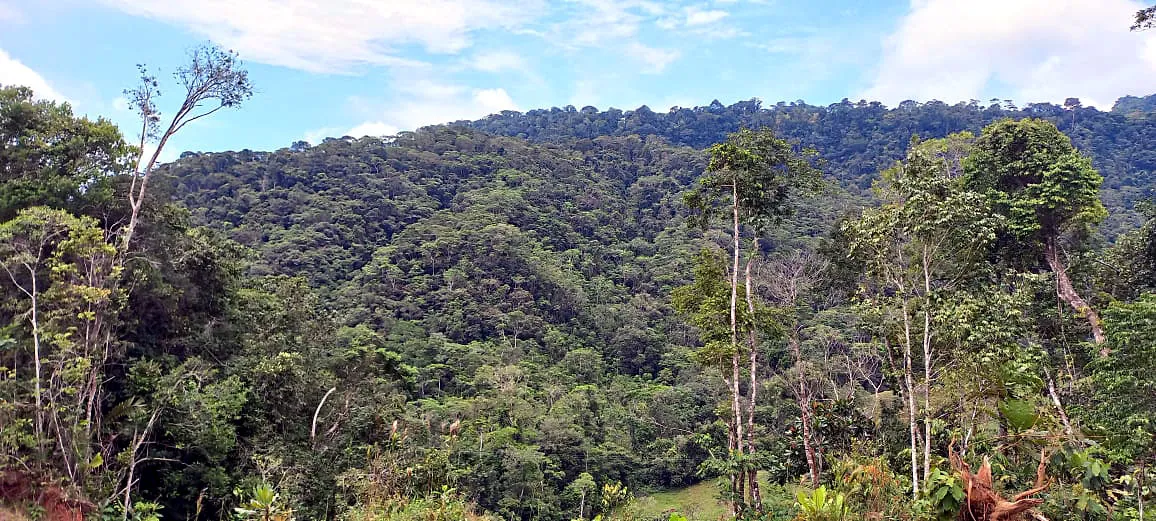The Rainforest Alliance launched, in Florencia Caquetá, the initiative Business Case for Collective Landscape Action (The Business Case), with the support of USAID, led by the Rainforest Alliance, and implemented by CDP, Clarmondial AG and Conservation International.
According to the Forest and Carbon Monitoring System (SMByC) of the Institute of Hydrology, Meteorology and Environmental Studies of Colombia (IDEAM), in 2020, the country lost 171,685 hectares of forest due to deforestation. Caquetá is one of the departments with the highest accumulated deforestation, about 25% of the total area with change of natural forest land use between 2017-2018.
In this context, the Business Case began activities in Caquetá’s foothills. This public-private initiative supported by USAID, is already working in Peru, Ecuador, Brazil, and Indonesia, and now in Colombia, under the leadership of the Rainforest Alliance. The Business Case seeks to reduce deforestation produced by commodities, through a landscape approach, and contributes to the reduction of Greenhouse Gas (GHG) emissions, conserves biodiversity and mobilizes sustainable investments to improve the management of the territory and the quality of life of thousands of producing families.
The importance of an integrated landscape approach
A landscape is a system of complex relationships between people and nature in a territory. Ecological, historical, economic, socio-cultural factors and economic activities are the main influences.
Therefore, the integral management of the landscape seeks to make better use of the natural resources of an area around basins, bioregions, municipalities, jurisdictions, or other political-administrative designations.
For the Rainforest Alliance, integrated landscape management is a comprehensive approach, which considers the needs of the parties involved, their risk factors, contributions, and management opportunities.
An alliance for a common goal
The governor and representatives of the department of Caquetá; producers of coffee, cocoa, rubber, and panela attended the event; as well as representatives of their associations and cooperatives; members of the USAID Colombian Mission and German Cooperation, representatives of international organizations such as Conservation International and CDP, among others. More than 150 people attended the in-person event and more than thirty connected virtually.
Darío Garzón Pastrana, delegate of the Environmental and Agriculture Secretariat of the Government of Caquetá, indicated: “The departmental plan includes a restoration approach and the generation of incentives for conservation. We count on the Alliance to include this comprehensive landscape approach, because it is the model we need in the area to develop sustainable production models.“
Jessica Rosen, Director of USAID Colombia’s Office of Sustainable Ecosystems and Economic Development, highlighted the importance of the Business Case collaborative approach in the current climate: “Almost a quarter of all greenhouse gas emissions are derived from deforestation and unsustainable land use in developing countries. If tropical deforestation were a country, it would rank third in global emissions. This problem is particularly acute in the Amazon, the Business Case will contribute to deforestation-free production,” she said.
Diana Quimbay, country director of the Rainforest Alliance in Colombia, introduced the organization highlighting: “Caquetá is a strategic landscape for the organization, where we have been implementing actions that will be strengthened with the Business Case, in order to contribute to reducing poverty, restoring territories and achieving sustainability“.
Finally, Vanessa Coronado, director of the global initiative, indicated that: “The common thread of this alliance is the development of Landscape Action Plans, which allow agreements to be reached to address deforestation caused by inadequate practices, loss of biodiversity and low productivity of some crops. In this context, the Business Case seeks to channel long-term investments that can be directed towards the department’s priorities.”
The Business Case had a great opening and gathered local actors, who will work in an articulated way for the benefit of Caquetá’s families. At the end of the event, attendees were able to taste and buy local products such as coffee, chocolates, panela, and other products that generate income for producing families.


